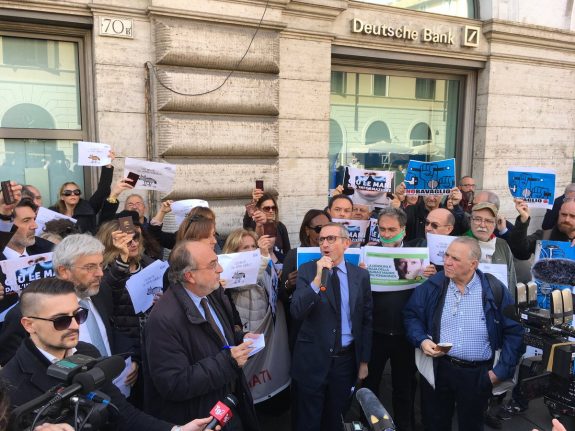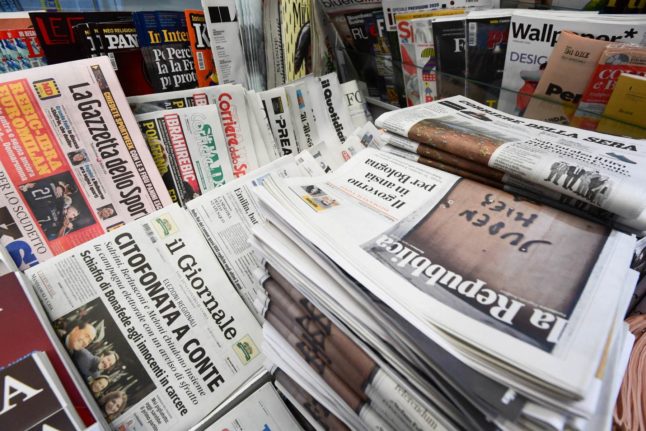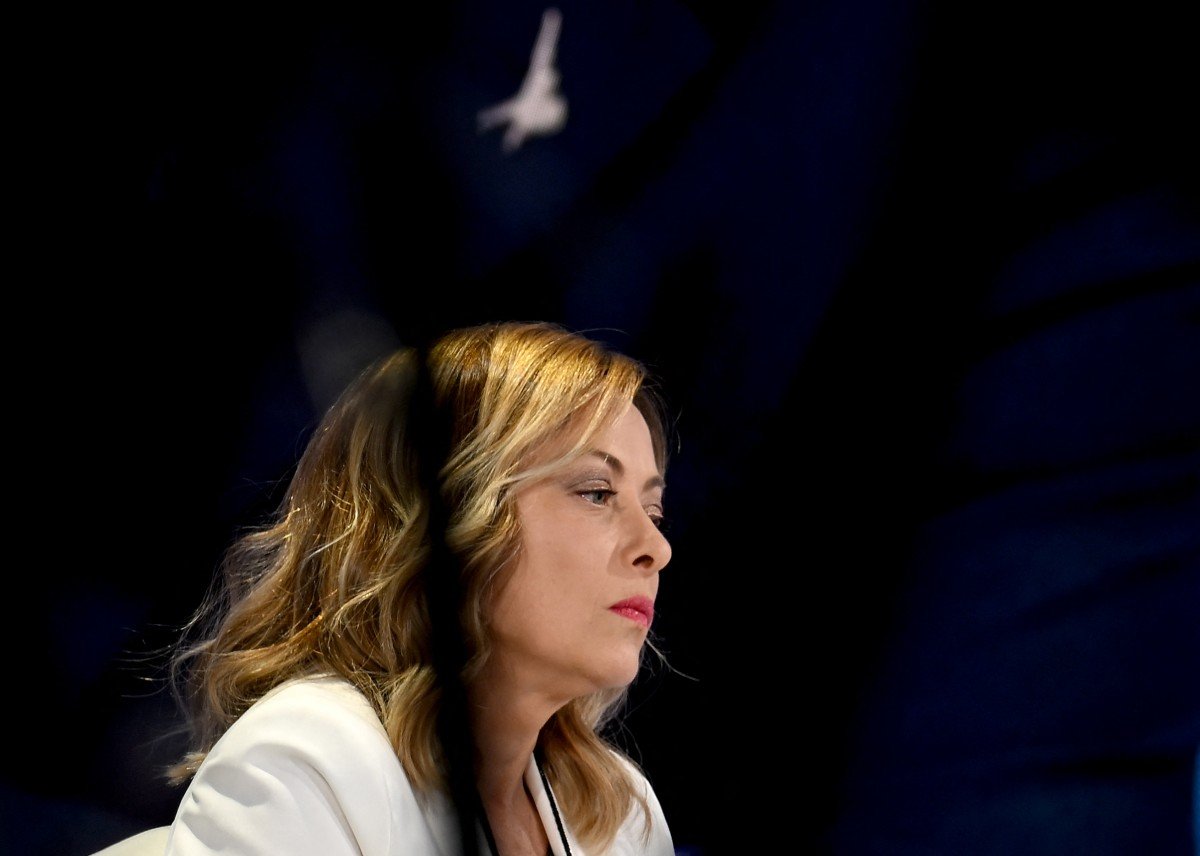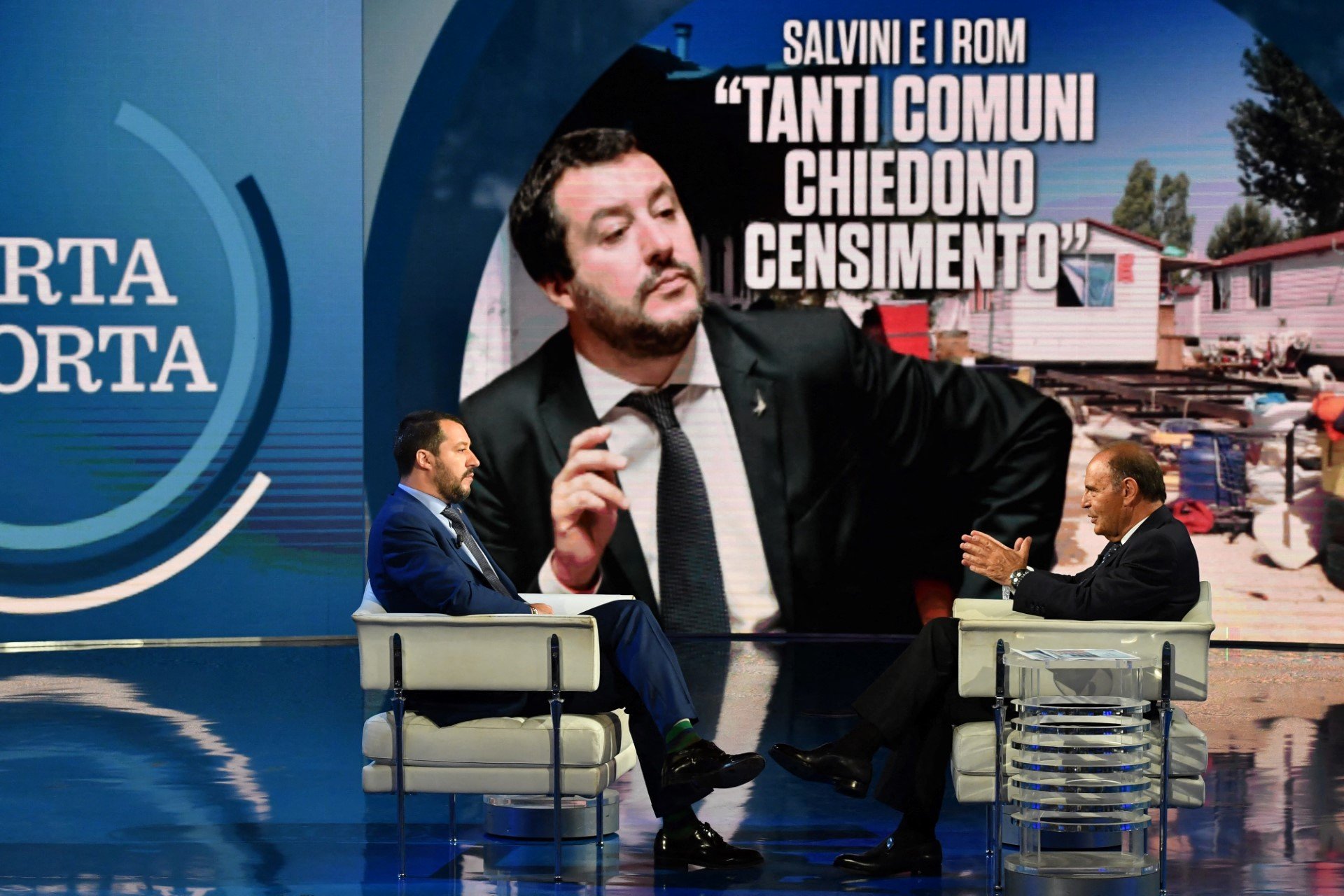The report from the Council of Europe's Platform for the Protection of Journalism and Safety of Journalists said Italy ranked as the EU member state with the highest number of active threats last year.
Globally, it said Italy was among the countries with the highest number of alerts posted on the Platform in 2018 – the same as Russia, and more than three times the number registered in 2017.
It added that the Italian authorities have not responded to any of the alerts since June 2017, and blamed hostile rhetoric from government ministers for the increased threat level.
“The growing violence against journalists in Italy is particularly worrying,” the report said.
It singled out Deputy Premiers Luigi Di Maio, the M5S chief, and Matteo Salvini, the League leader, for criticism. It said they “regularly express through social media rhetoric particularly hostile to the media and journalists.”
 Italian Deputy Prime Minister and M5S leader, Luigi Di Maio. Photograph: Tiziana Fabi/AFP
Italian Deputy Prime Minister and M5S leader, Luigi Di Maio. Photograph: Tiziana Fabi/AFP
The report said most of the alerts were recorded after the coalition government took office in June 2018.
It said journalists’ unions complained of a “constant risk of violence fuelled by the hostile rhetoric of members of the government and the ruling coalition parties.”
It said the Platform recorded three cases of journalists facing death threats in 2018, while 21 reporters threatened by the mafia live under permanent police protection.
READ ALSO: Slovakia to extradite Italian suspect named by murdered journalist
“Among other things, Deputy Prime Minister Salvini has threatened to remove police protection for investigative journalist Roberto Saviano, despite the known threats to his life from criminal organisations,” the report said.
The interior ministry last week removed police protection from veteran mafia journalist Sandro Rufolo, despite mafia bosses threatening to have the reporter “butchered alive”.
 Sandro Ruotolo. Screenshot from Fanpage.it
Sandro Ruotolo. Screenshot from Fanpage.it
Last month two journalists from L’Espresso newspaper were assaulted by far-right extremists in Rome, and a notorious mobster was convicted last June of assaulting a journalist who’d asked him questions.
The two deputy prime ministers have themselves hurled insults at journalists, provoking furious protests from journalists’ unions.
READ ALSO: Press freedom in Italy: Key things to know
The report also pointed out that Di Maio has initiated a policy of abolition of public funding to local newspapers.
The two deputy prime ministers also caused an outcry when they nominated conspiracy theorist Marcello Foa as the new director of national broadcaster Rai. He was later appointed to the post by committee.
Foa, a longtime ally of Salvini, is also known to be a supporter of Russian President Vladimir Putin. He has publicly supported anti-vaccine theories, retweeted neo-fascists on Twitter and claimed that NGOs are operating an “immigration factory”.
READ ALSO:





 Please whitelist us to continue reading.
Please whitelist us to continue reading.
Member comments